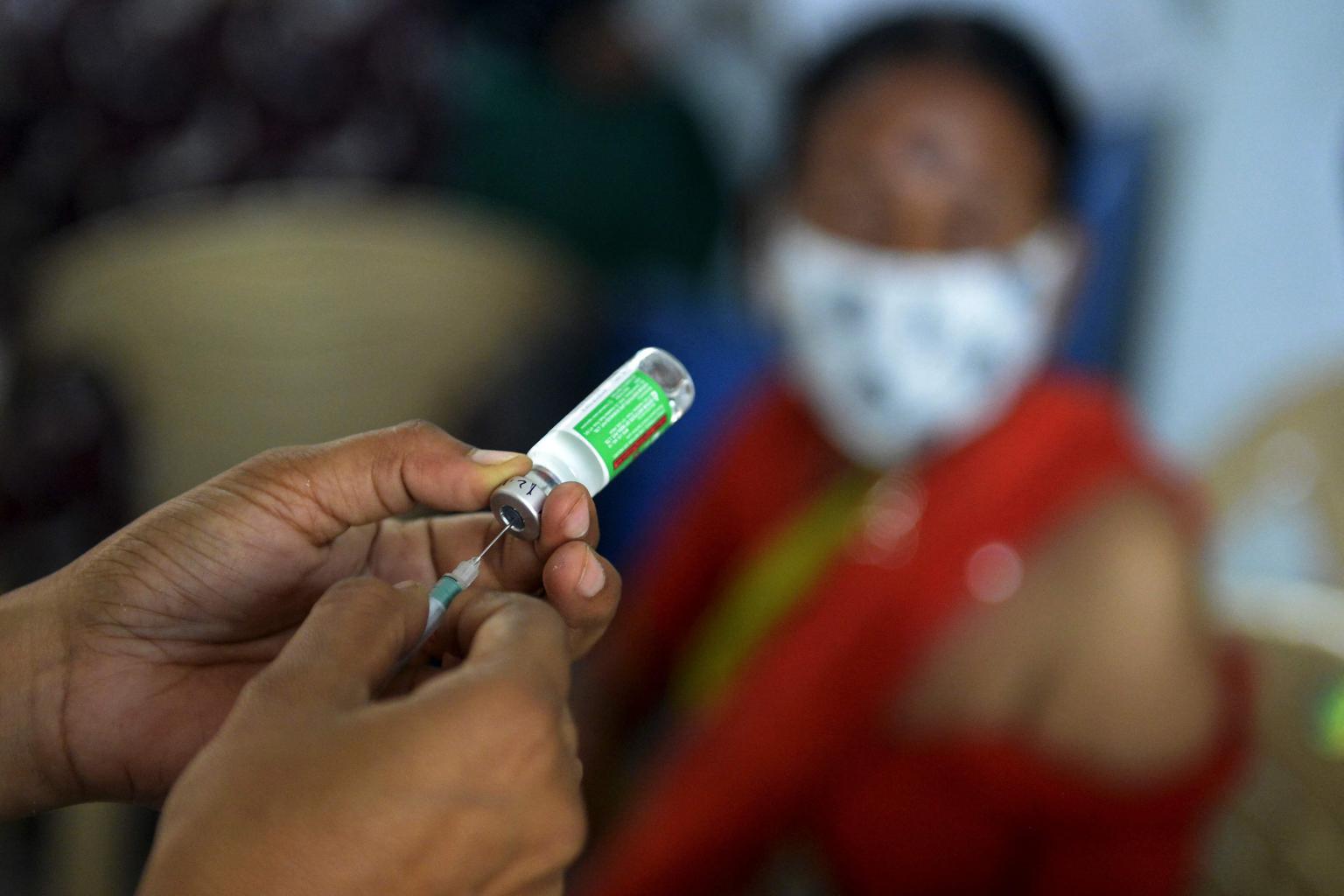Night curfew imposed in Delhi to check surging Covid-19 cases
Sign up now: Get insights on Asia's fast-moving developments

India had expanded its vaccination programme to include everyone above the age of 45.
PHOTO: AFP
Follow topic:
NEW DELHI (AFP, REUTERS) - The Indian capital on Tuesday (April 6) imposed an immediate night curfew a day after the nation posted a record coronavirus surge, with financial hub Mumbai also introducing similar restrictions.
Alarm has grown since India passed more than 100,000 new cases in a single day for the first time on Monday.
New Delhi, which is home to 25 million people, and other major cities have all ordered a clampdown on public movement.
The Delhi regional government said the "sudden increase in Covid-19 cases" and "high positivity rate" meant a night curfew was needed.
The ban will be in place from 10pm to 5am with only essential services or people travelling to and from vaccination centres allowed on the streets.
Delhi reported 3,548 new positive cases on Monday, still below its peak of nearly 9,000 in November, when it was one of the worst-hit cities across the nation of 1.3 billion people.
The government has so far shied away from reimposing a repeat of nationwide restrictions imposed in March last year - one of the world's toughest lockdowns - as it seeks to revive the devastated economy.
But India's wealthiest state Maharashtra, which includes Mumbai, on Sunday announced a weekend lockdown and night curfew on its 110 million population.
The state currently accounts for more than half of the new cases reported each day nationwide.
India, which has the world's third-highest number of infections after the United States and Brazil, has reported almost 12.7 million cases and more than 165,000 deaths.
Single-day infections have been rising since early February when they fell to below 9,000.
The country has recorded more than 549,000 cases in the last seven days - an increase of 40 per cent compared to the previous week, according to an Agence France-Presse database.
Brazil recorded just under 440,000 cases and the US reported just over 453,000, but both with a decreasing trend from the previous week.
India's health ministry said on Tuesday that more than 83 million vaccination shots have been administered as part of an ambitious drive to inoculate 300 million by the end of July.
Delhi has, meanwhile, ordered one-third of all its vaccination sites at government hospitals to open around-the-clock to speed up the pace of inoculation.
Many Indian state leaders have asked Prime Minister Narendra Modi to open up vaccinations to most of the country's hundreds of millions of adults, following a second surge in infections that has eclipsed the first wave.
India breached the grim milestone of 100,000 daily infections for the first time on Monday. On Tuesday, the country reported 96,982 new infections overnight.
India, the world's biggest vaccine maker, this month expanded its vaccination programme to include everyone above the age of 45. So far it has vaccinated only about one in 25 people, compared with nearly one in two in the United Kingdom and one in three in the United States.
"If a larger number of young and working population is vaccinated, the intensity of the cases would be much lower than the treatment that they need today," Mr Uddhav Thackeray, Chief Minister of India's worst affected Maharashtra state, wrote in a letter to Mr Modi late on Monday.
Delhi Chief Minister Arvind Kejriwal and many other states have also asked for faster and wider vaccinations, with some flagging tightness in vaccine supplies even for the prioritised groups.
The federal government has said it will widen the vaccination campaign in the "near future" to include more people, and that vaccine supplies are being stepped up.
The country's daily infections have risen many fold since hitting a multi-month low in early February, when authorities eased most restrictions and people largely stopped wearing masks and following social distancing.
India has recorded the most number of infections in the past week anywhere in the world. More infectious variants of the virus may have played a role in the second surge, some epidemiologists say.

